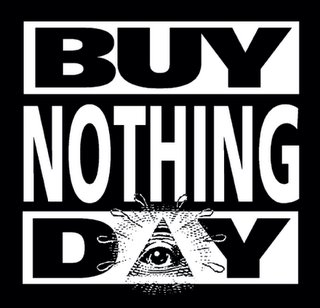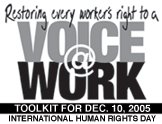
Naomi Klein in
No Logo raises serious concerns about Corporate Codes of Conduct. (p. 432)
Who gets to place the controls over human rights abuses in global production operations? People and democratically elected representatives or the global corporations themselves? Privatized corporate codes give us the corporations' answer to this question. (p. 434)
It is Orwellian: turning the enforcement of basic human rights into a multinational industry, as the private codes would do. Global labor and environmental standards should be regulated by laws and governments - not by a consortium of TNCs and their accountants, all following the advice of their PR firms.
The bottom line is that corporate codes of conduct - whether drafted by individual companies or by groups of them, whether independently monitored mechanisms or useless pieces of paper - are not democratically controlled laws.
Not even the toughest self-imposed code can put the multinationals in the position of submitting to collective outside authority. On the contrary, it gives them unprecedented power of another sort: the power to draft their own privatized legal systems, to investigate and police themselves, as quasi nation-states. (p. 437)
..."despite ineffectiveness of governments and the rhetoric of corporate triumphalism, there are still some mechanisms left with which to regulate multinationals. As we have seen, there are trade agreements and local selective purchasing laws, as well as ethical investment drives - but conditions can also be attached to government loans and insurance offered to foreign investors, as well as to involvement in government trade missions." We must force multinationals to accept such restrictions... (p. 437)
When we start looking to corporations to draft our collective labor and human rights codes for us, we have already lost the most basic principle of citizenship: that people should govern themselves.
By attempting to enclose our shared culture in sanitized and controlled brand cocoons, these corporations have themselves created the surge of opposition described in this book. By thirstily absorbing social critiques and political movements as sources of brand "meaning," they have radicalized that opposition still further. By abandoning their traditional role as direct secure employers to pursue their branding dreams, they have lost the loyalty that once protected them from citizen rage. (p. 441)
 The World Bank says the next world war will be fought over water. Doesn't seem like a good time to give up the people's rights over this public good.
The World Bank says the next world war will be fought over water. Doesn't seem like a good time to give up the people's rights over this public good.  campaign on water and Coke, which is stealing and contaminating water in India.
campaign on water and Coke, which is stealing and contaminating water in India. 









